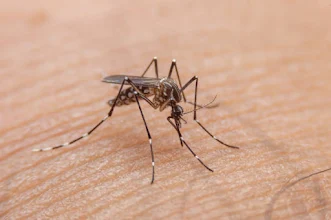Dengue Fever Symptoms, Treatment, Vaccine, and the Latest News in the U.S.
Dengue fever is a mosquito-borne viral infection that poses a significant public health concern, particularly in tropical and subtropical regions. However, with global travel and climate change, cases of dengue fever have been reported in the United States as well. This article discusses the symptoms, treatment options, available vaccines, and the latest news on dengue fever in the U.S.
Symptoms of Dengue Fever
Dengue fever symptoms typically appear 4 to 10 days after being bitten by an infected mosquito and can range from mild to severe. The symptoms include:
1. High Fever: Sudden onset of a high fever, often reaching up to 104°F (40°C).
2. Severe Headache: Intense headache, often behind the eyes.
3. Muscle and Joint Pain: Severe muscle, bone, and joint pain, which is why dengue is sometimes called "breakbone fever."
4. Nausea and Vomiting: Persistent nausea and episodes of vomiting.
5. Fatigue: Severe fatigue and general weakness.
6. Skin Rash: A rash that may appear a few days after the fever begins.
7. Mild Bleeding: Symptoms of mild bleeding, such as nosebleeds, gum bleeding, or easy bruising.
In severe cases, dengue can progress to Dengue Hemorrhagic Fever (DHF) or Dengue Shock Syndrome (DSS), which can be life-threatening and requires immediate medical attention.
Treatment for Dengue Fever
There is no specific antiviral treatment for dengue fever. Management focuses on alleviating symptoms and preventing complications:
1. Hydration: Patients are advised to drink plenty of fluids to prevent dehydration.
2. Fever Management: Over-the-counter pain relievers like acetaminophen (Tylenol) are recommended to reduce fever and pain. Aspirin and nonsteroidal anti-inflammatory drugs (NSAIDs) should be avoided as they can increase the risk of bleeding.
3. Rest: Adequate rest is crucial to help the body fight off the infection.
4. Hospitalization: In severe cases, hospitalization may be required for intravenous fluid administration and close monitoring of vital signs.
Dengue Fever Vaccine
The first dengue vaccine, **Dengvaxia (CYD-TDV),** was approved by the FDA in 2019 for use in the United States. It is recommended for children aged 9 to 16 who have previously been infected with the dengue virus and live in endemic areas. The vaccine is given in three doses over 12 months.
It is important to note that Dengvaxia is not recommended for individuals who have never had a dengue infection, as it may increase the risk of severe dengue if they become infected later.
Latest News on Dengue Fever in the U.S
As of 2024, dengue fever remains a concern in the U.S., particularly in states like Florida, Texas, and Hawaii, where local transmission has been reported. Climate change and global travel have contributed to the spread of dengue in areas where it was previously uncommon.
- Florida: In recent years, Florida has seen an increase in locally transmitted cases of dengue, particularly in the Miami-Dade County area. Public health officials have issued warnings and are monitoring the situation closely.
- Texas: There have been sporadic cases of dengue in Texas, particularly in border regions near Mexico. The state has enhanced mosquito control efforts to prevent outbreaks.
- Hawaii: Hawaii has also reported cases of dengue, with efforts focused on mosquito control and public awareness to prevent the spread of the virus.
Public health agencies continue to emphasize the importance of mosquito control measures, such as using insect repellent, wearing long sleeves and pants, and eliminating standing water where mosquitoes breed.
Conclusion
Dengue fever is a serious viral infection that requires prompt recognition and supportive care. While a vaccine is available for those in endemic areas with previous exposure, prevention remains key. Staying informed about the latest developments and taking precautions can help reduce the risk of dengue fever.


